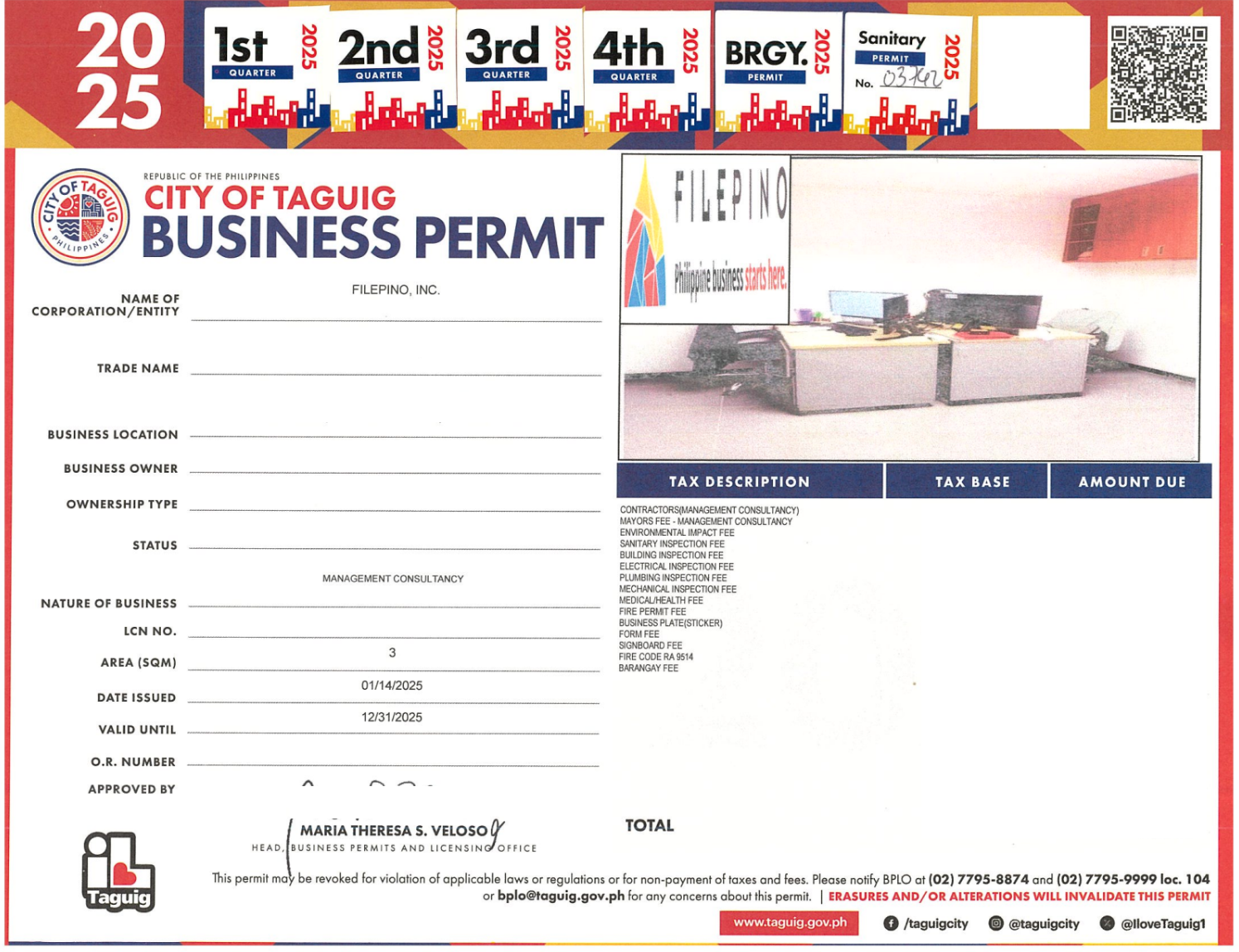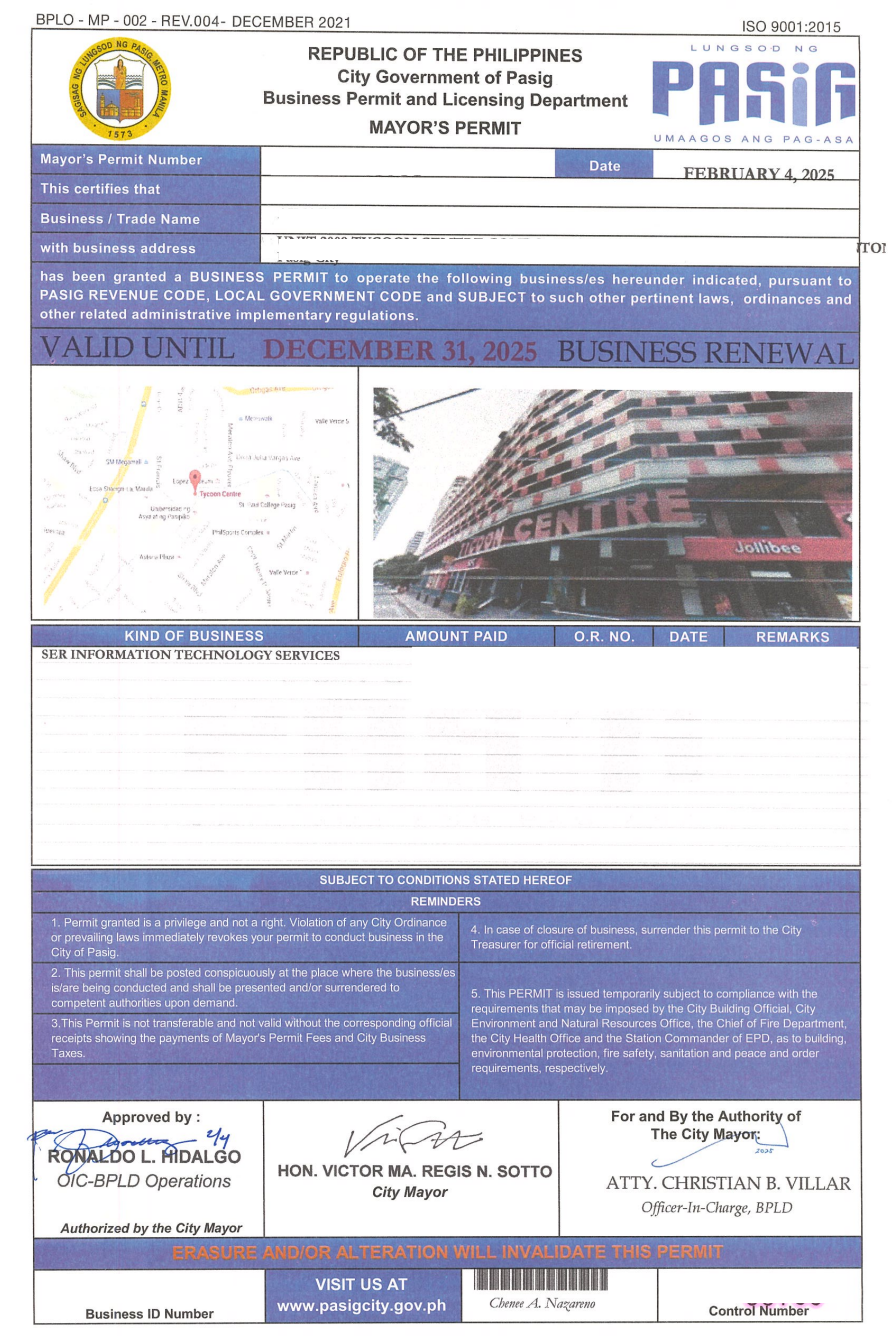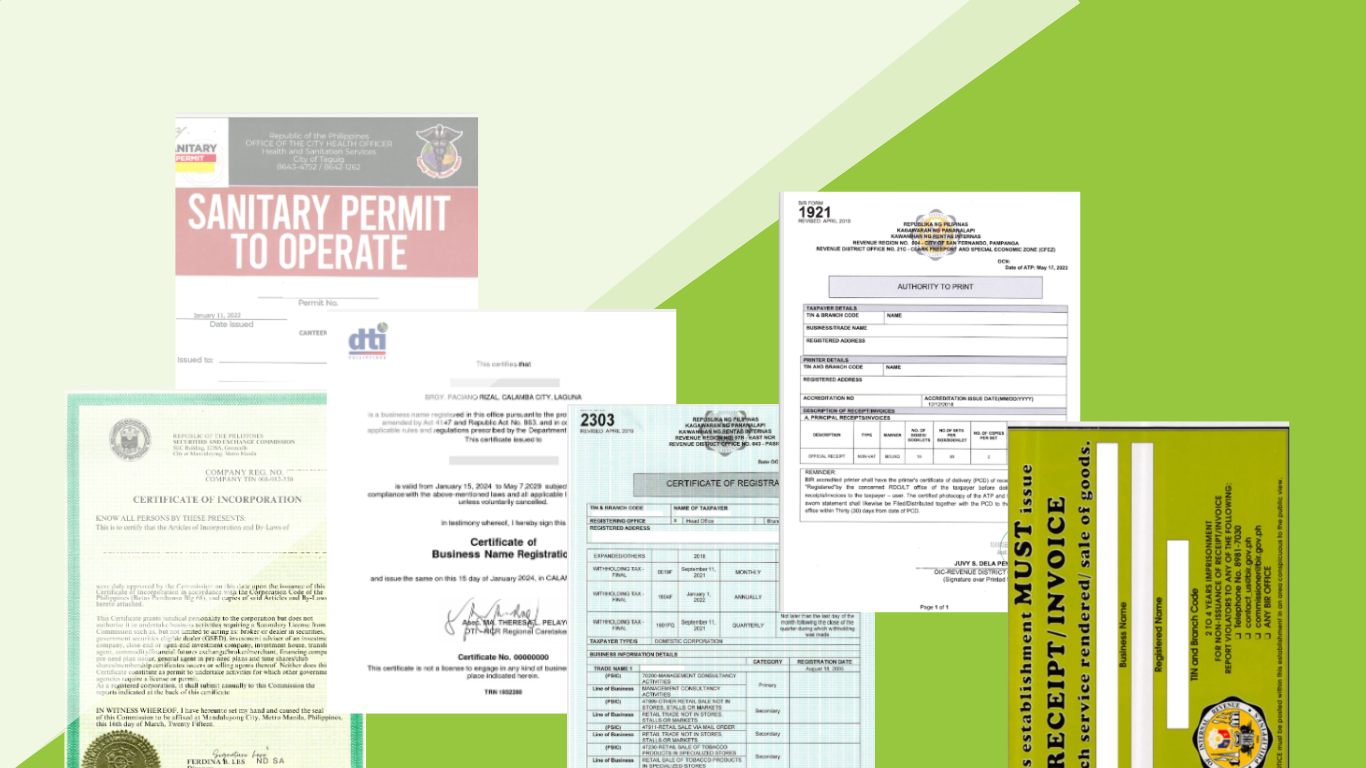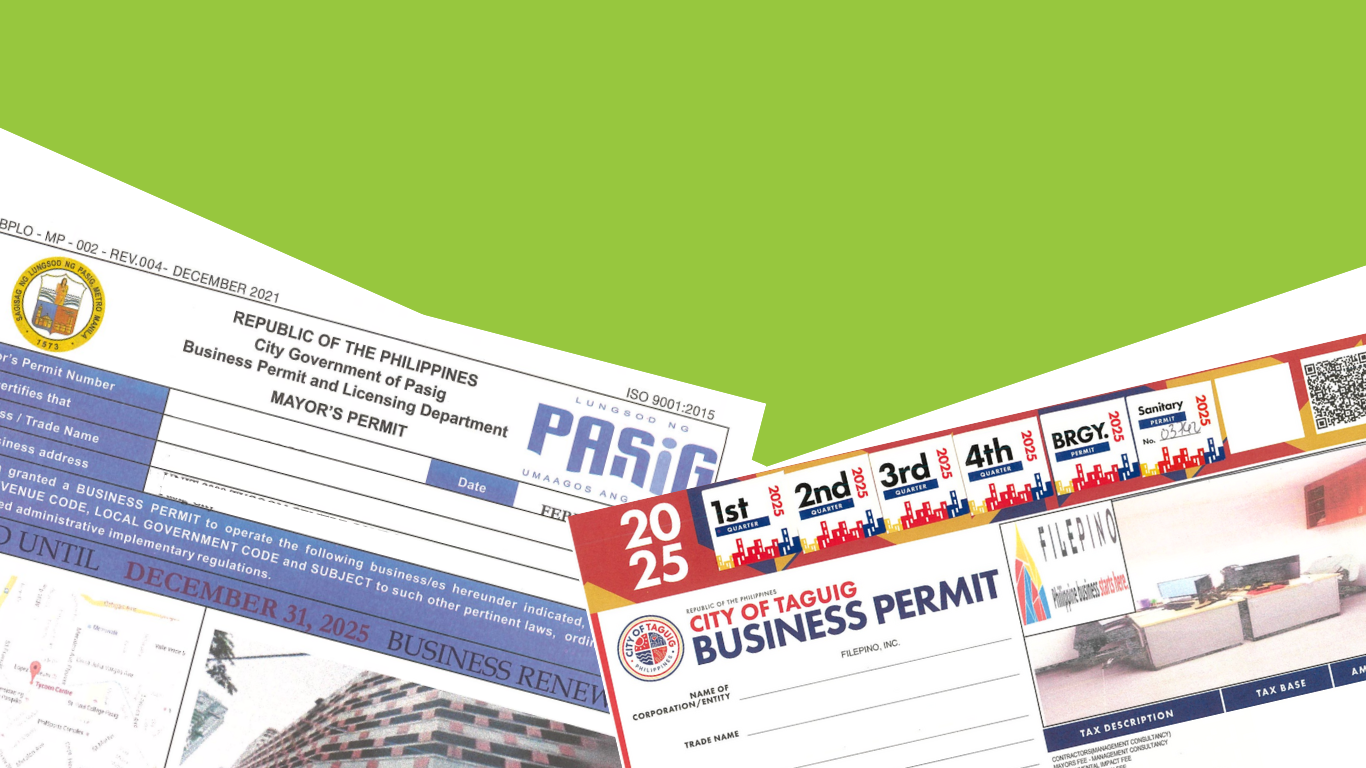Starting a business in the Philippines involves more than having capital or resources. Your company must also secure the necessary permits and licenses to operate legally.
Among the most important Philippine documents you need is the business permit, also known as the mayor’s permit. Without this permit, your business operations will be illegal, which could cause you to pay high penalties, fines, or worse, closure of the business.
In this article, we will help you understand the importance of a business permit in the Philippines for business registration, the requirements, and how to apply.
What is a Business Permit?
A Business Permit is an official license issued by the Local Government Unit or LGU, authorizing the business to operate legally within its jurisdiction. It ensures that the business complies with the regulations set by the municipal or city government, such as compliance with health, sanitary permit, environmental, safety standards, and local & business tax payments.
Applying for a business permit is done after you have registered your business or company with either the Department of Trade and Industry (DTI) or the Securities and Exchange Commission (SEC).
Difference between Business Permit and Mayor’s Permit
Many of you might get confused about whether a Business Permit and a Mayor’s Permit are two separate documents. In the Philippines, these documents refer to the same document. Both terms refer to the official license granted by the mayor of a city or municipality that authorizes a business to operate.
For example, when you visit your local municipality’s Business Permit and Licensing Office, or BPLO, they will process your application for a Mayor’s Permit, which is also your official Business Permit.
The term used may depend on the city or municipality. Regardless of what it’s called, it’s the same permit required for all businesses operating in the Philippines.
And just like obtaining the permit itself, business permit renewal follows the same process every year, typically required every January. Whether your city calls it a Business Permit Renewal or Mayor’s Permit Renewal, it refers to the renewal of the same document.
Business Permit Sample

Taguig Business Permit (Mayor’s Permit)

Pasig Business Permit (Mayor’s Permit)
Business Permit Requirements
Documentary requirements may vary depending on the city or municipal BPLO. It is important to contact the local government city office to verify the requirements for the application of a business permit.
Commonly, business permit requirements include:
BPLO Application Form
Application Forms for Other Clearances and Permits
Lease Contract (or other equivalent documents)
Certificate of Occupancy
SEC Certificate of Incorporation
Locational Map (Google Maps)
Pictures of Office Location (e.g., 3R images, outside and inside)
Corporate Logo
List of Employees (if any)
Employees’ Medical Certificates (i.e., depending on the LGU)
Other certificates and affidavits (i.e., depending on the LGU)
Other pre-defined additional requirements
How Much Are Business Permit Fees in the Philippines?
Business permit fees in the Philippines are not fixed; they vary depending on several factors. The cost of application of a business permit may depend on the nature of your business, its industry classification, your city or municipality’s local ordinances, and the scale of your operations. Each LGU may have different computations, so it’s always best to coordinate directly with your local city hall or Business Permit and Licensing Office (BPLO) for an accurate assessment.
Sample Breakdown of Business Permit Fees
Mayor’s Permit, Business Tax, and Other Local Fees (Quarterly): Around PHP 2,500
Community Tax Certificate (Cedula): Approx. PHP 500
Zoning Clearance Fee: Around PHP 100
Barangay Clearance: Approx. PHP 1,000
Business Plate: Around PHP 500
Comprehensive Liability Insurance: Estimated PHP 1,570
Estimated Total for Initial Business Permit Application: ₱6,170
Note: This is a sample computation based on common fee structures in some cities. Actual amounts may vary. Always check with your local government unit (LGU) for the official breakdown of fees applicable to your business.
Why Do You Need a Virtual Office When Applying for a Business Permit?
One common challenge for startup business owners, freelancers, and even SMEs when applying for a Business Permit is the requirement for a physical business address. This is where a virtual office becomes extremely helpful.
Business Address Requirement
The Business Permit or Mayor’s Permit application requires a valid business address. If you don’t have a dedicated physical office yet, especially for online businesses or remote operation, a virtual office provides you with a legitimate address recognized by the LGUs.
Cost-Effective
Renting or purchasing a physical office space can be expensive, especially in major cities. Using a virtual office allows you to meet the business permit requirements without the high overhead costs of traditional office spaces.
Additional Service of Virtual Office
Many virtual offices also offer mail handling, document storage, and conference room access, which can help meet or preserve other business permit requirements such as barangay clearance or lease contracts.
Conclusion
Securing a Business Permit or Mayor’s Permit is a non-negotiable step for anyone who wants to operate a legitimate business in the Philippines. Whether you’re setting up a small online shop or launching a large corporation, having this permit proves that your business is compliant with local laws and gives you access to more opportunities.
Remember, Business Permit and Mayor’s Permit are the same—the terms used may vary depending on your city or municipality, but you only need to apply for one official permit issued by your LGU. Don’t forget to renew your business permit every year, usually by January, to avoid penalties or interruptions in your operations.
If you don’t have a physical office yet, a virtual office is one of the smartest solutions to meet address requirements for your application. It’s affordable, practical, and helps you project a professional business image.



